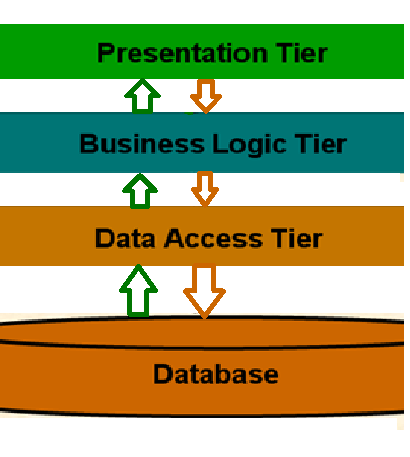Multiple Ways to Call Javascript Function from CodeBehind in ASP.Net
Multiple Ways to Call Javascript Function from CodeBehind:
JavaScript is one of the very versatile
scripting languages that are used in Web applications. Even though we can
accomplish everything in server side programming using C#, it is still
advisable to do some of the things like validations, etc in clientside using
JavaScript. In ASP.Net 1.x, we don’t have that much support in the framework to
hook JavaScript functions from the asp.net page dynamically. This drawback was
addressed with the release of ASP.Net 2.0 by providing developers a lot many
features to embed JavaScript blocks dynamically through a class called
ClientScriptManager.
ClientScriptManager Class:
We normally add JavaScript functions to our
webpage using <Script> tag. There are situations where we need to add the
scripts dynamically from the codebehind class. In .NetFramework 1.x version,
there is no class that helps us to handle this situation effectively. This
drawback was addressed .NetFramework 2.0 by introducing a new class called
ClientScriptManager.
This class can be
used to manage and add script blocks to the asp.net page from codebehind class.
know about ClientScriptManager Class:
ClientScript property of the Page object will
give us an instance of ClientScriptManager object. We can add the scripts
dynamically through this instance which will be then injected in the HTML
output.
This
class uniquely identifies scripts by a key String and a Type. Scripts with the
same key and type are considered duplicates and hence similar scripts are
avoided. This will avoid the confusion caused when we are adding scripts from
usercontrols. For example, the method IsClientScriptBlockRegistered() can be
used for checking duplicate script registered for RegisterClientScriptBlock()
method.
ClientScriptManager class has a set of useful
methods which we can use to inject the JavaScript functions in the HTML output.
We can choose to use these methods to accomplish our requirements depending on
the situation.
Examples related to gridview:
- Show gridview Row Details.
- Templatefield in gridview
- Introduction of Asp.net grid view Control.
- Example of Templatefield in gridview .
- Example of DropDownList inside GridView
- Check box in ASP.NET GridView
- Ckeck box list example using javascript in grid.
- Check box in ASP.NET GridView
- Show grid view row details in to tooltip.
- How to Bind Grid view Form database.
- Show gridview Row Details And Give Example.
- Example of Template field.
- How to Bind Grid view Form database.
- Template field in asp.net grid view.
- Example of DropDownList inside GridView control
- Introduction of Asp.net grid view Control.
- Example of C# for Bind Data to asp.net Textbox inside gridview control
- Bind Data to asp.net textbox control in inside of gridview Using C# Example




Comments
Post a Comment